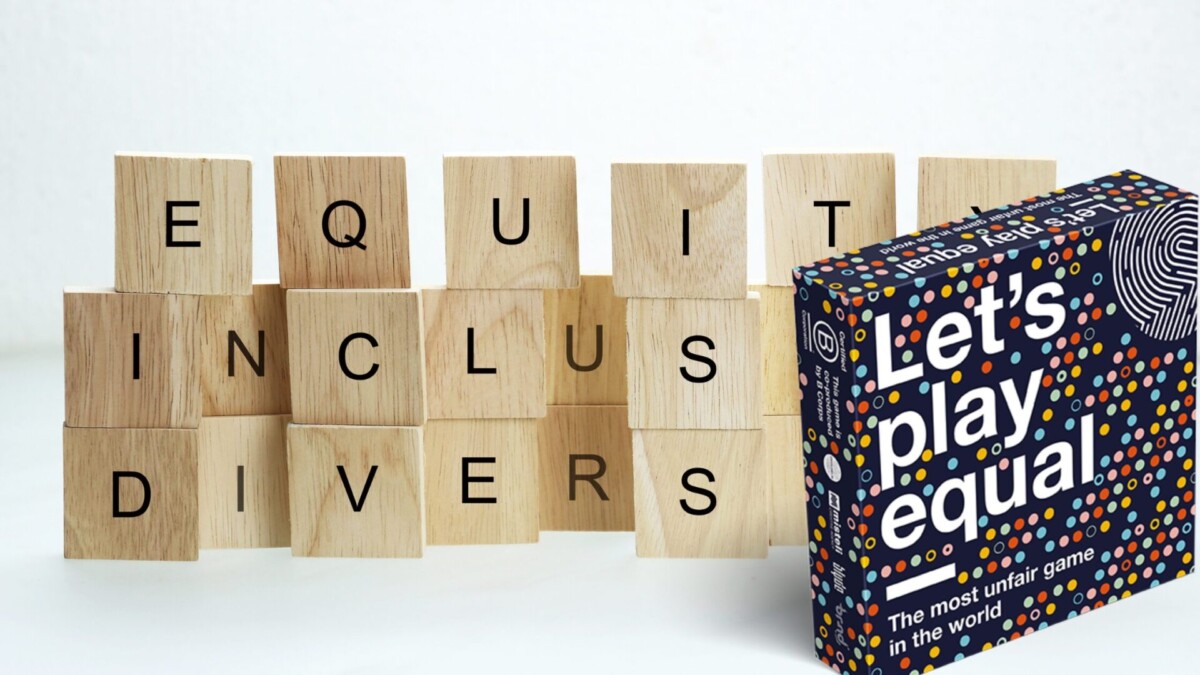Let’s Play Equal – A New Way to Talk About Justice, Equity, Diversity, and Inclusion at Work
Diversity is more than a value, it’s a workplace reality. Teams today are made up of people from different backgrounds, beliefs, and experiences. This diversity brings opportunity, but it only leads to real progress when people engage with it.
Across Europe, many organizations embrace Justice, Equity, Diversity, and Inclusion (JEDI) as core values. They host Diversity Days, adopt inclusive policies, and run awareness campaigns. These are important steps. Yet many still ask, “How do we go beyond awareness and actually live these values at work?”
At A Beautiful Green, we believe action is just as important as intention. That’s why we now offer Let’s Play Equal: a powerful, practical tool to help teams have real conversations about inclusion.
This card-based game creates space for open, honest, and respectful dialogue. It helps people reflect, connect, and move from theory to everyday practice.
What Is Let’s Play Equal?
Let’s Play Equal is a card-based game focused on justice, equity, diversity, and inclusion.
There’s no competition. No points.
The goal is deeper understanding and connection.
By sharing thoughts and experiences, teams uncover new perspectives and build empathy. The goal is to create a safe and supportive environment where people feel comfortable sharing openly and without hesitation.
More than a simple exercise, it can be integrated into team meetings, team-building events, training sessions, or leadership development. It’s an impactful tool for any group looking to grow in awareness and action.
Why Use a Game?
Conversations about inclusion can be sensitive or difficult to understand. Games, however, create a relaxed space where people feel free to share and more willing to listen.
Experiential learning, like that offered by Let’s Play Equal, has been shown to foster lasting change. Participants are more likely to retain what they learn and apply it to real-life situations.
As noted by B Lab Europe, these topics are often hard to talk about or turn into policies. But when presented through games, they become more accessible. Games offer a playful but powerful way to engage with sensitive issues in a safe environment.[1]
Creating inclusive workplaces requires more than good intentions; it takes structure, dialogue, and consistency.
Let’s Play Equal helps make that shift, one conversation at a time.
Our Experience at A Beautiful Green
Our Team is trained to facilitate Let’s Paly Equal in Belgium, France and the Netherlands. In Luxembourg, IMS is your partner to experience Let’s Play Equal!
Since our work unites sustainability, business strategy, and people-centered progress, Let’s Play Equal fits naturally. It turns inclusive values into lived experiences.
Why It Matters Now
In our recent blog article for European Diversity Month, we emphasized that JEDI is a continuous journey even in uncertain times. Across Europe, interest in DEI efforts is growing steadily as more companies recognize their role in shaping fairer, more inclusive workplaces.
Yet, challenges remain. According to the EY European DEI Index, only 7% of organizations actually achieve inclusive cultures. [2] This reveals a gap between intention and outcome.
Inclusion isn’t a checklist item. It’s a mindset and a daily practice.
Let’s Play Equal helps bridge the gap with human connection, shared reflection, and practical tools.
Let’s Talk (or Play?)
If your team is looking for a better way to talk about inclusion, we’re here to help.
At A Beautiful Green, we now offer guided Let’s Play Equal sessions for teams of all sizes.
We believe that inclusion starts with curiosity. And sometimes, all it takes is a card.
👉 Ready to explore? Let’s talk.
References:
[1] B Lab Europe. (2023). B Corps Collaborating for Equality & Inclusiveness. https://bcorporation.eu/blog_post/b-corps-collaborating-equality-inclusiveness/
[2] EY. (2024). European DEI Index: Companies in Europe Are Still Behind. https://www.ey.com/en_ro/newsroom/2024/04/-ey-european-dei-index-companies-in-europe-are-still-behind
